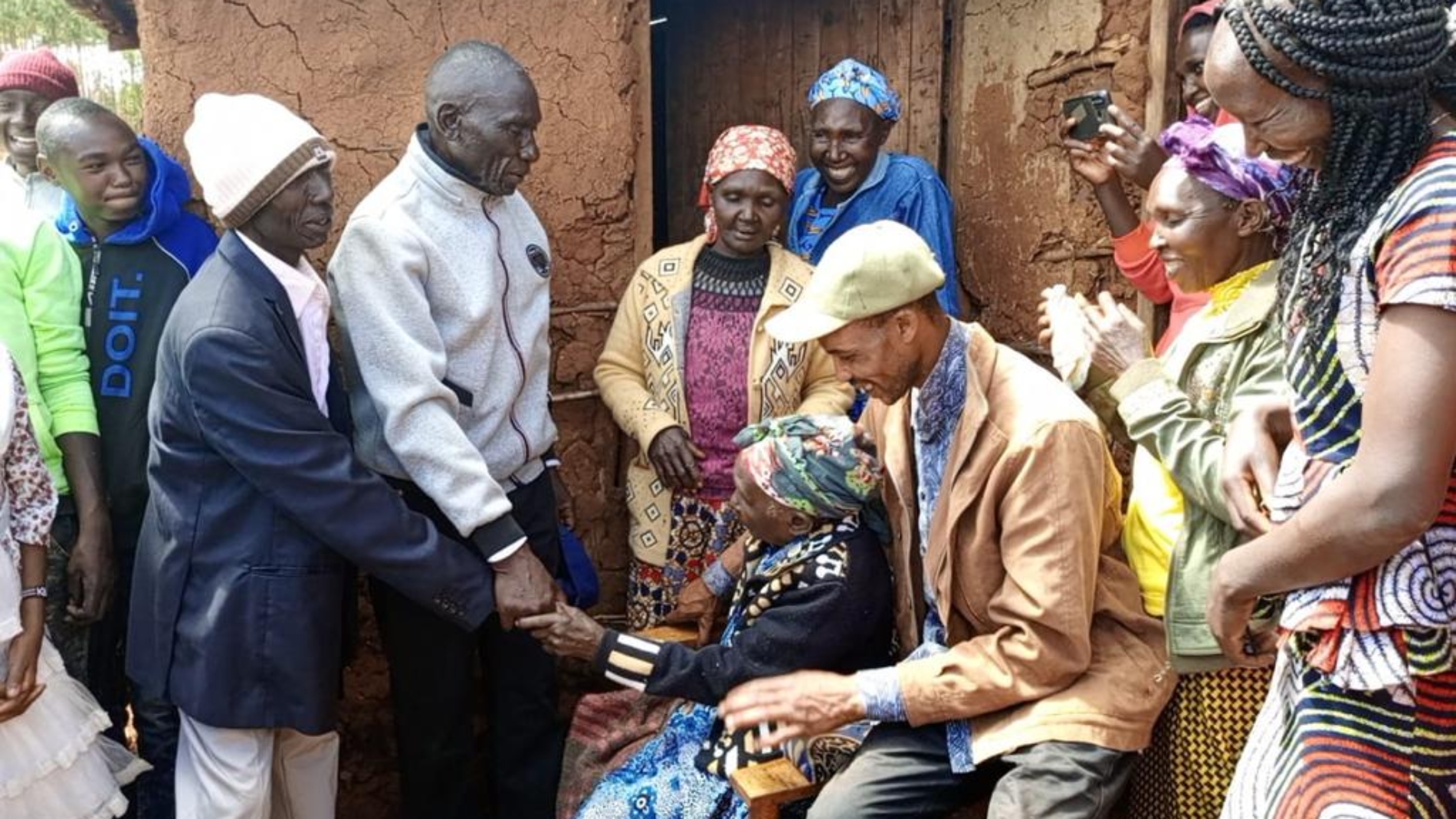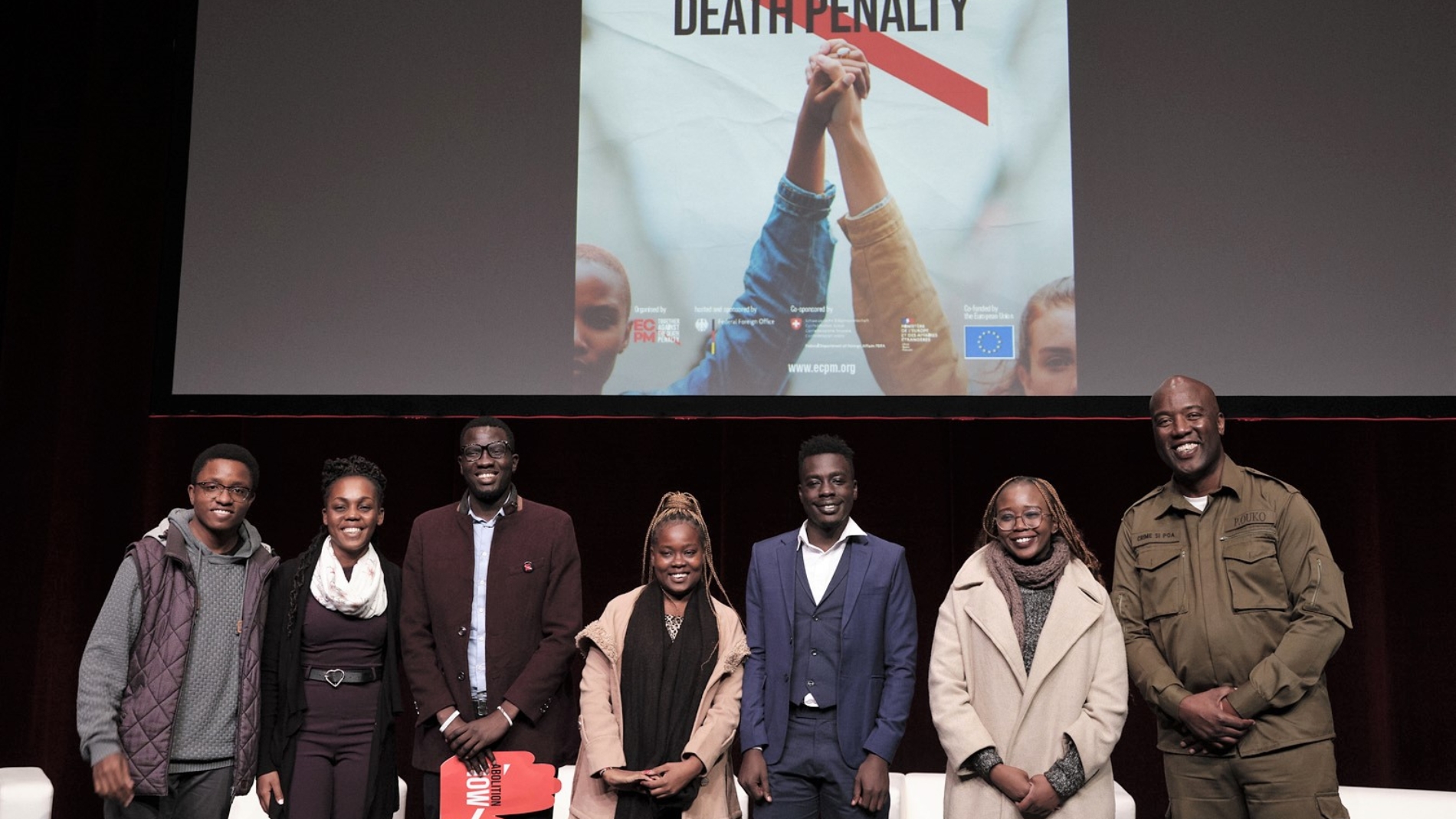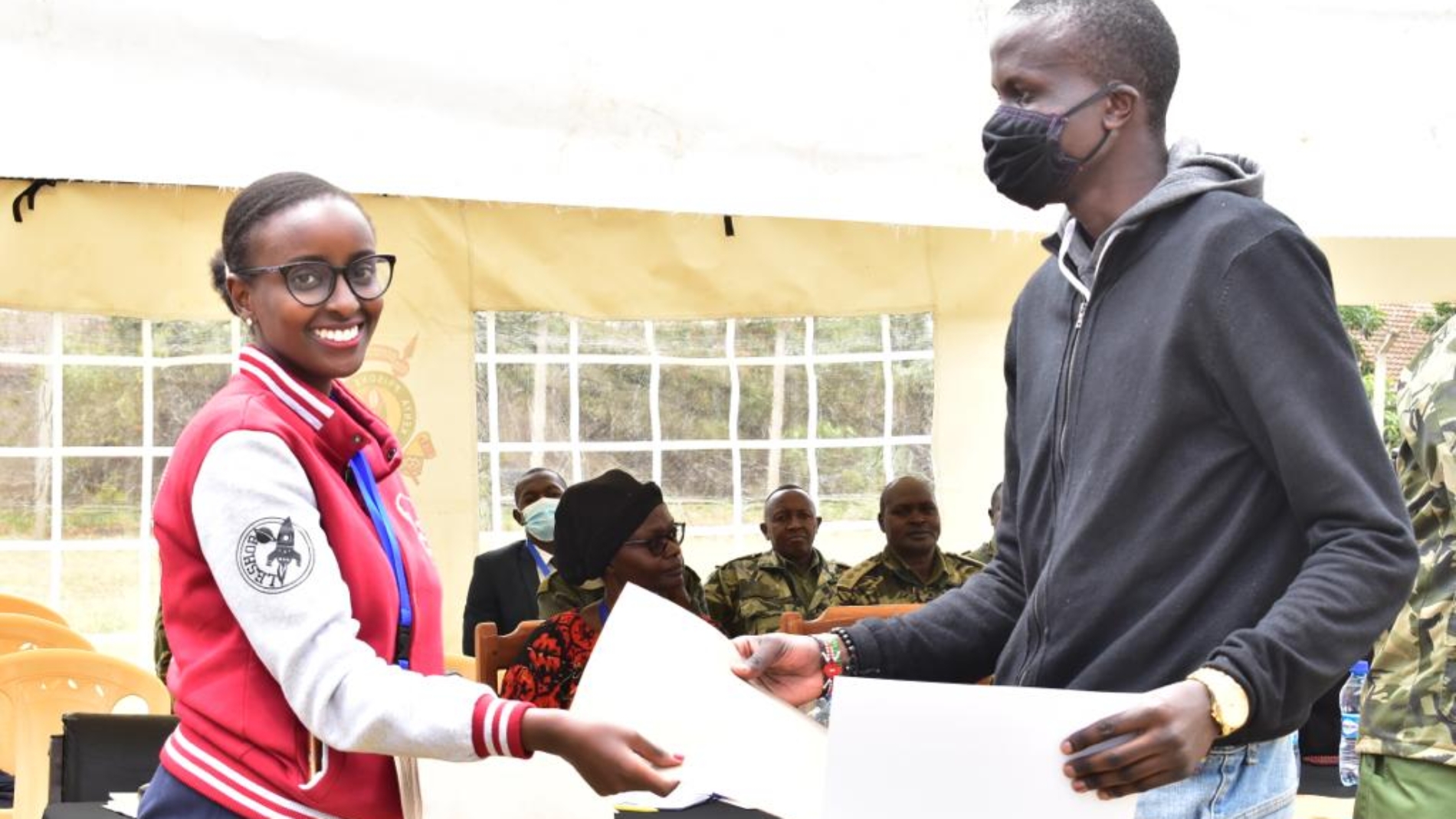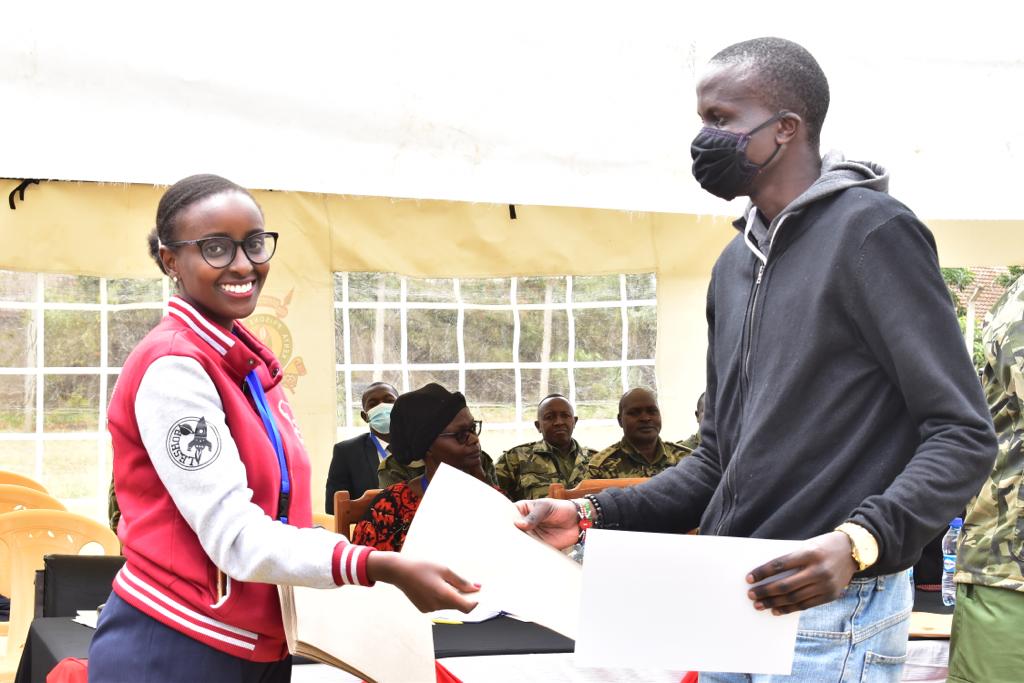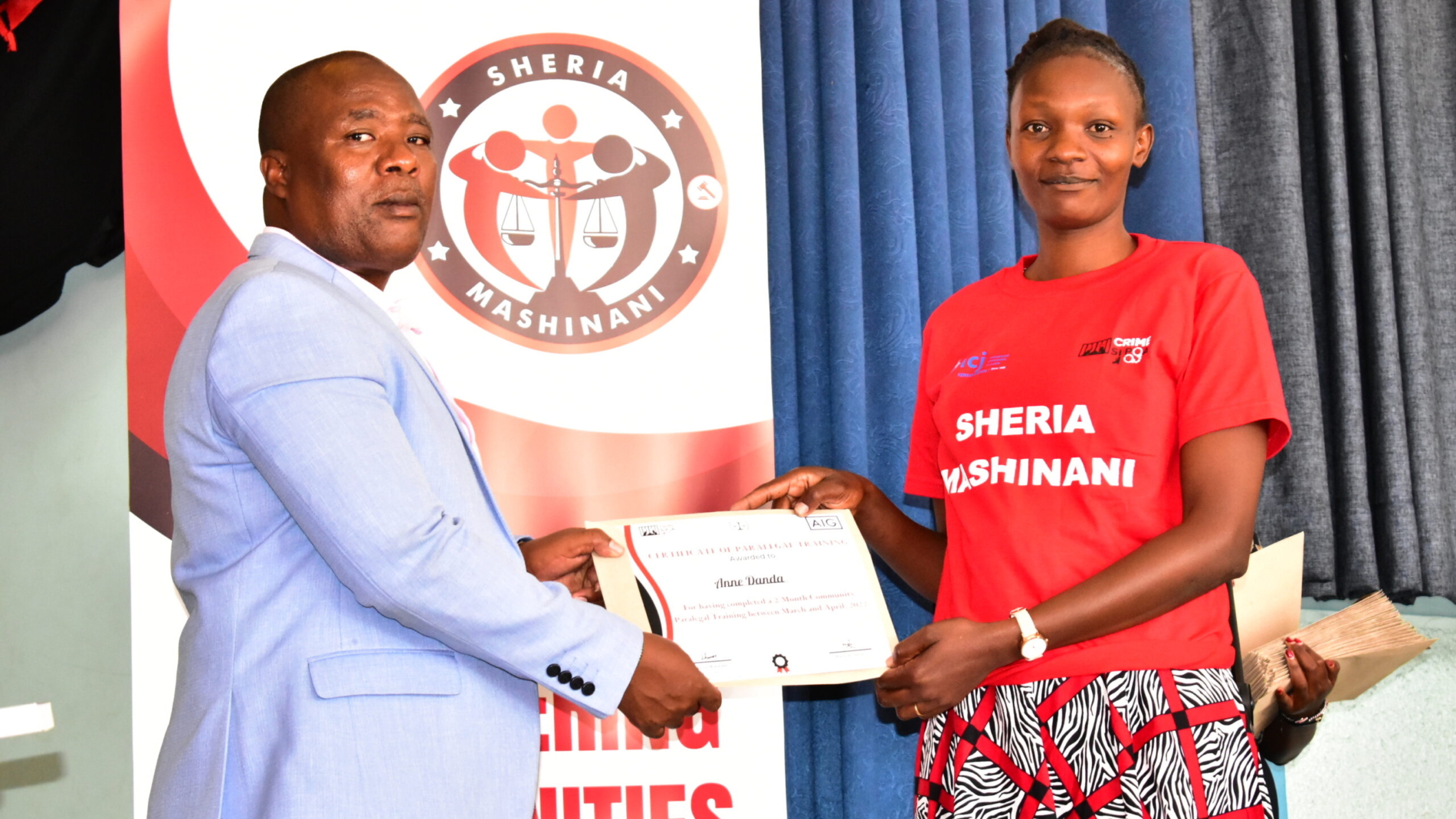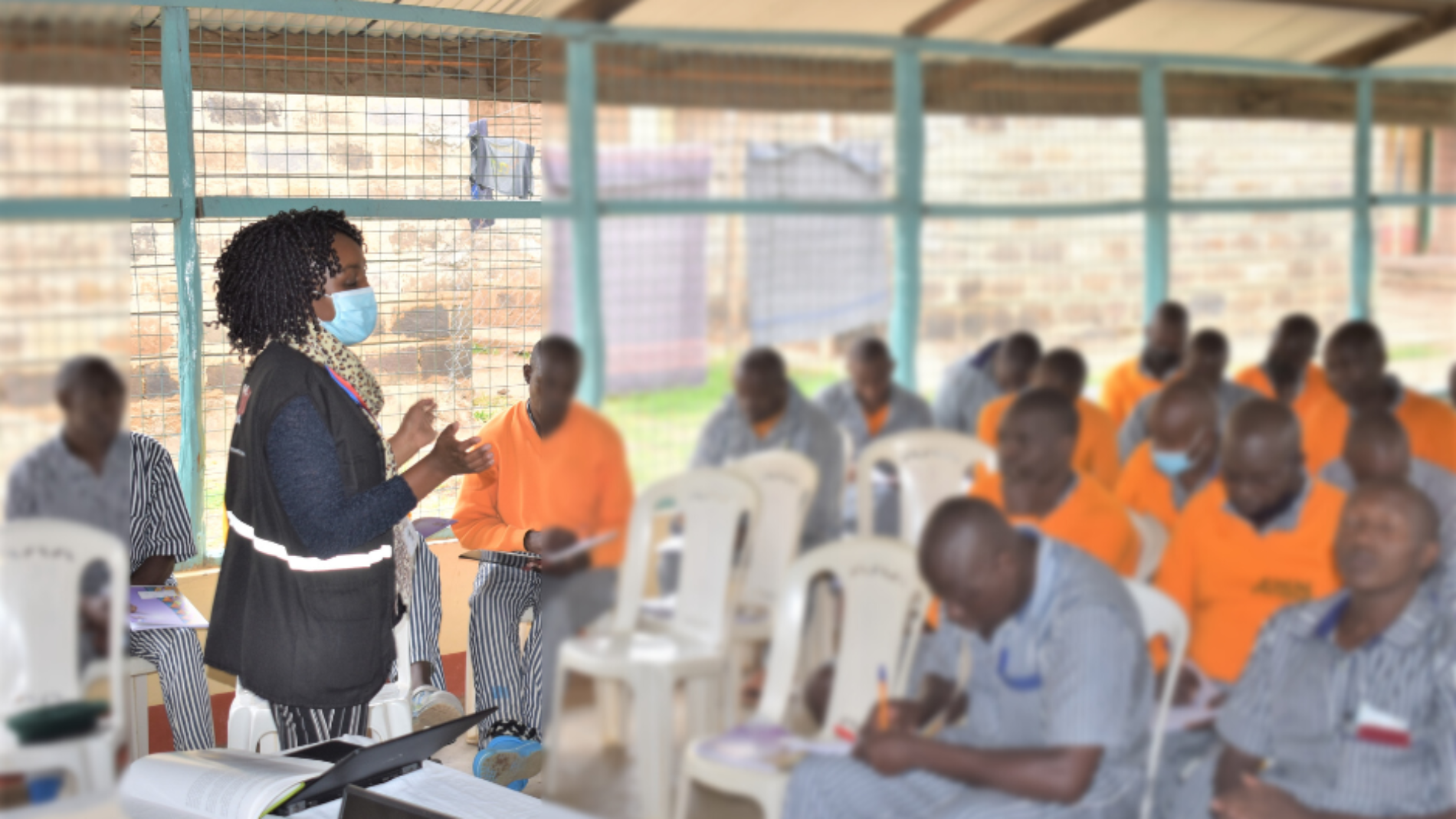As the day was breaking on Friday 27th Jan, Joseph Kang’ethe knew that his long-awaited day had arrived. He could smell the freedom that he long desired for almost two decades that he had been behind bars. He had dreamt of this day and even fantasized about it all the time in his mind. He so long desired it.
And at midmorning, the gates of Nakuru men’s prison squeaked slowly and opened him to the horizon of all possibilities where he could see all the things that he had hoped and dreamt of past the prison walls. This was it! With just a suitcase containing his clothes and with a novel in hand, he took the first step towards his freedom. Mr. Kang’ethe was arrested in 2005 but he remained on remand up until 2009 when he was convicted and found guilty by a court in Molo.

In prison, he had taken up vocational courses which he hopes will help him gain income and speed his reintegration. “I have gained skills in metal works, leather works, and also tailoring which I hope will come in handy when I settle at home,” said Mr. Kang’ethe while addressing journalists outside the prison gates.
With the glaring fact of inadequate resources, he called on well-wishers to help him get a sewing machine so that he can also teach other young people how to sew as he gets his livelihood. “I will start my tailoring shop and I ask people of goodwill to help me get a sewing machine, I want to pass this knowledge to young people as I caution them against engaging in crime,” he noted.
Prison officers described him as a reformed and reliable man, traits that saw him granted the coveted “trustee” status in prison. (A trustee is a trustworthy and well-disciplined inmate who leads and mentors the others to ensure order in the daily activities in prison.)
Joseph was one of the Crime Si Poa beneficiaries in Nakuru Men’s Prison. He religiously attended the pre-release psychosocial and wellness classes run under our prison centric Phoenix program.
“Crime Si Poa has helped in my stay in prison, and they told me even when I go back home, I should strive to live harmoniously with others and stay in peaceful environments,” says Joseph.
A senior Prison Officer, Superintendent Odera described him as a transformed man: “I am happy and glad that Joseph is being released from Prison as a reformed man. We had elevated him to trustee status when he was here in prison,” he commented. “I urge the community to embrace him fully as he is transformed so that he can share his skills with other people.” Stated SP. Odera
After a 3 hours’ drive from prison accompanied by prisons and Crime Si Poa officials and battery of journalists, Joseph was received with jubilation and dances at their home in Kuresoi North. Overjoyed family members and friends could not hide their joy as they embraced their lost son who had been behind bars for almost 20 years. His 95-year-old mother was particularly delighted to see her son. “I’m glad that he came back home when I’m still alive and I can see him,” she said.
Crime Si Poa Phoenix program works in prisons and Borstal institutions in concert with the Prisons welfare and spiritual departments through a package of services including spiritual and psychosocial support, mentorship, entrepreneurship training, legal awareness and support services and talent development amongst others. This is all geared towards the reformation of those who have been in conflict with the law and their subsequent reintegration into the community upon release.
We thank our partners and The Answer Foundation for their support in the program
See links to the media coverage

